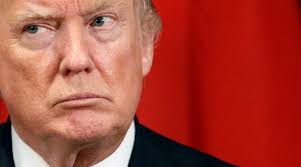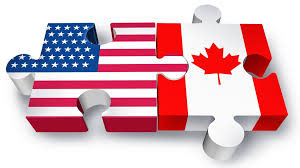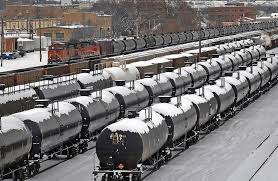 By Ray Rivers
By Ray Rivers
November 24th, 2018
BURLINGTON, ON
The only similarity between the federal economic statement and the one Ontario announced last week was that neither has a plan to deal with their growing deficits. Canada’s debt as a percentage of its GDP is the second lowest among G7 countries – higher than Germany but lower than the USA and less than half of Japan’s numbers.

We cant just print the money we need.
Despite all the alarm-ism during the last election, Ontario’s debt compared to its GDP is quite a bit lower than that of our national government. But unlike a provinces, which can only control its levels of taxation and spending, the federal government also controls and/or influences interest rates, currency exchange rates and the money supply, including printing our money.
When Donald Trump cut US business taxes Canada had to respond or run the risk of watching new business investment move to larger markets south of the border. Canada has long had lower effective corporate taxation rates than the USA but that competitive advantage has now mostly vanished. And cutting corporate taxes to restore that advantage would have added tens of billions more to the deficit, making it a non-starter.

“America was no longer the fair-minded economic partner we had come to know.”
But it was really Trump’s trade policies that made our government sit up and take notice. America was no longer the fair-minded economic partner we had come to know. The painful process of renewing NAFTA, the unwarranted and costly tariffs on steel and aluminum, and the US role in slashing the price of Alberta oil required a new strategy – one of trade diversification.
For those who lived through the government of the first Trudeau this is a bout of deja vu. Pierre, faced with an unfriendly Nixon administration, developed what was called the ‘Third Option’ – hoping to diversify our dependency on trade away from the US. The Third Option, which also gave us our domestic metric system, largely failed as a trade strategy.
Britain was joining Europe which was itself pre-occupied resolving internal trade barriers, Japan was struggling with its identity as an emerging economic powerhouse, and China turned the tables on us making us trade-subservient to them. Then Richard and Pierre were replaced by Ronnie and Brian who bonded beautifully, and they buried what was left of the third option. Canada and US agreed to lower trade barriers in a process that eventually included Mexico in NAFTA, and the rest is history.

We are so tightly integrated to the American economy that it would be very difficult – if possible – to lessen that integration.
So today we are even more closely integrated into the US economy with three quarters of our exports and a third of our GDP tied to US markets. After all it is so much simpler to just load a truck and drive it across the border than to be bothered shipping overseas to foreigners. We share a common culture and language (except for Quebec), and the US is a prime travel destination for Canadians looking to escape the cold, making us sometimes more American than the Americans.
But we do pay a price when it comes to national identity, and in the end we can find ourselves alone, being bullied by our major economic partner who thinks it has found its own third or fourth option – the nationalist cry of America First. We have since negotiated a number of other so-called free trade agreements, most importantly with Europe (CETA) and also Asia and the Antipodes (CPTPP,) so it is time we put our money where our mouths are on trade diversification.
But it will take some money to restructure our economy onto more of an export footing. The goal of boosting Canada’s overseas exports by 50 per cent by 2025, will not be met just by accelerated depreciation, but it is a good start. And the business community, manufacturing in particular, is besides itself with praise of this mini-budget. For once they are not complaining about a growing budgetary deficit.
Increased manufacturing would enable Canada to better diversify its exports beyond our current raw materials mix, and may also lead to greater import substitution – though that is not the stated goal. Almost as a footnote, companies investing in clean energy production also get this break.
And just to be fair, other businesses will also be entitled to an accelerated depreciation though at a lower rate. Depreciation rates will be raised from four to twelve percent for a pipeline company, for example. And where is our pipeline is the lament of the Alberta oil industry and its government?

The Alberta government wants the federal government to help pay for oil tankers – Ottawa hasn’t said yes to that request.
They were disappointed that the federal government didn’t pamper them by supporting the price of oil in this budget, or offer to pay for more rail cars – after it had already bought a pipeline company. Perhaps Mr. Trudeau was concerned that he’d be accused of starting a national energy program? And besides how could he reconcile a subsidy for oil when the government is imposing a carbon tax?
The federal government is also planning to redirect and speed up some of its planned funding for the national infrastructure program into marine ports, roads and railways to expedite overseas trading opportunities. And yes this throws last election’s deficit targets into the toilet not that Mr. Trudeau was on the road to balance the budget next year anyway.
There is no guarantee even if Trump is defeated in the next federal election that Democrats would not be just as protective when it come to trade. In fact there have already been rumblings from the new Congress-elect that they will want to re-examine USMCA. One has only to recall how the Canada-friendly Obama administration implemented a “Buy American” clause in the US stimulus package as he undertook to fight the 2008/2009 recession.
Conventional wisdom is that you run a deficit in a recession and a surplus in good times. The Liberals are making the case that, given the deficits in our economic infrastructure, there is no better time to invest than when the economy is booming and the money is rolling in. After all, how prudent would it be to balance our federal budget for the short run only to forego investing to make our economy viable for the longer run?
 Ray Rivers writes regularly on both federal and provincial politics, applying his more than 25 years as a federal bureaucrat to his thinking. Rivers was once a candidate for provincial office in Burlington. He was the founder of the Burlington citizen committee on sustainability at a time when climate warming was a hotly debated subject. Ray has a post graduate degree in economics that he earned at the University of Ottawa. Tweet @rayzrivers
Ray Rivers writes regularly on both federal and provincial politics, applying his more than 25 years as a federal bureaucrat to his thinking. Rivers was once a candidate for provincial office in Burlington. He was the founder of the Burlington citizen committee on sustainability at a time when climate warming was a hotly debated subject. Ray has a post graduate degree in economics that he earned at the University of Ottawa. Tweet @rayzrivers
Background links:
Countries by Debt – Fall Economic Statement – Canada’s Economy –
Business Reaction – Third Option – 50% Export Growth –
Manufacturers Happy – Will it Work –



















The announcement yesterday regarding the closure of the GM plant in Oshawa really underscores the need to develop trading alliances outside of the USMCA. Hard to believe that both Toyota and Honda now manufacture more automobiles in Canada than does FCA, Ford or GM. Increasingly, the U.S. regards us a junior partner, and our political and economic interests are no longer in close alignment. Having said that, trade with southeast Asia, particularly China, poses potential security, copyright and unfair trade practice risks.
With CETA increasingly under threat, and both Spain and Italy talking of withdrawing, the idea of forging an expanded trading bloc involving Australia, New Zealand, Great Britain and some of the Scandinavian countries needs further examination and consideration.
Hans – thanks and you right about Italy – though CETA is operational now and European exports have increased while ours haven’t under it so far. https://www.cbc.ca/news/politics/ceta-anniversary-imports-exports-1.4823822
Re: “We have since negotiated a number of other so-called free trade agreements, most importantly with Europe (CETA)…”. – I read this week that Italy’s political leadership was unwilling to ratify CETA.